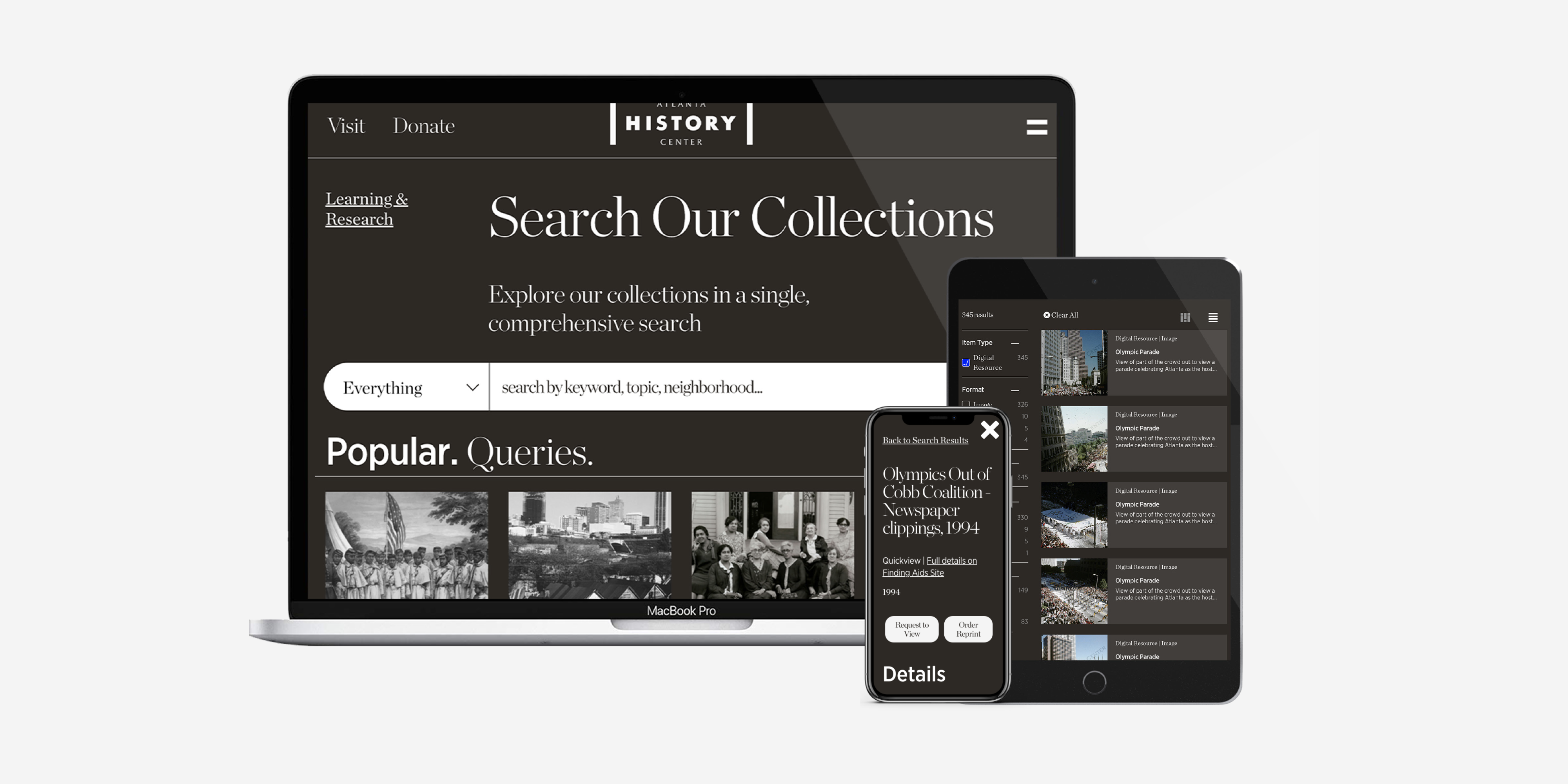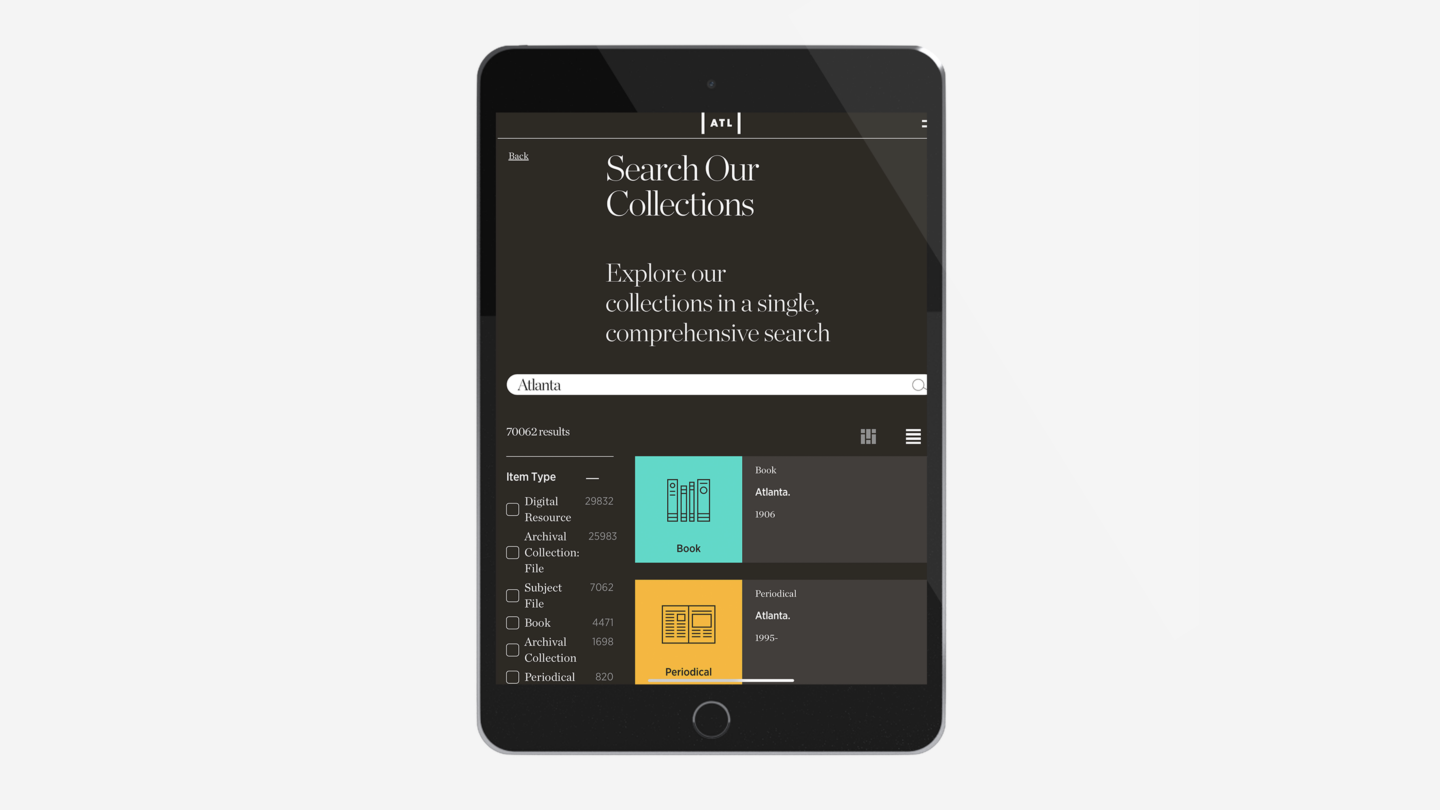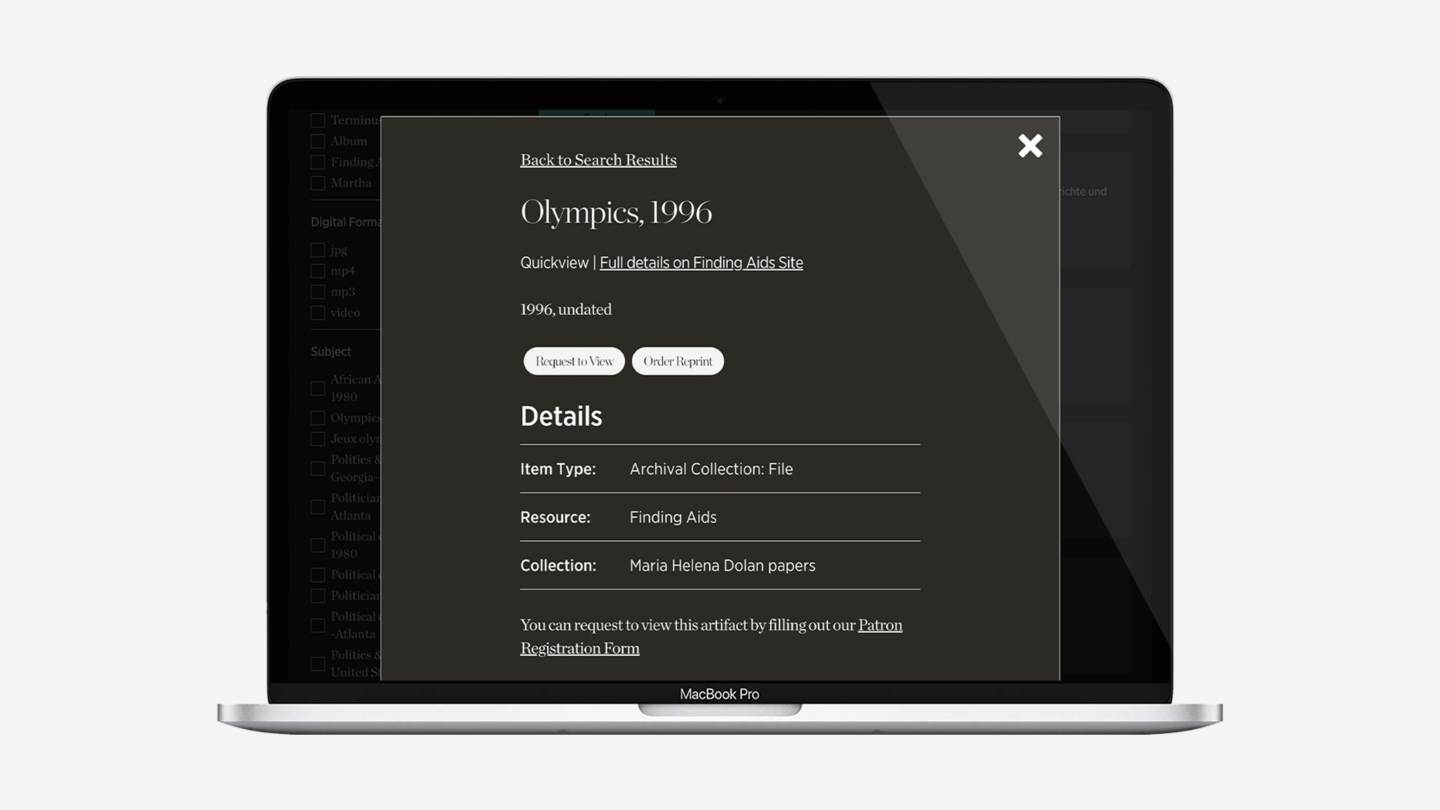
Atlanta History Center is the repository of millions of pages of archival documents and photographs, and tens of thousands of books, maps, museum artifacts, oral history interviews, and much more, with the collection growing every day. Making all of those items easily searchable by the public has been an ongoing challenge as the institution tries to balance public access, user accessibility, and using the most effective and efficient databases for each type of archival or museum object.
For the first time in the institution’s nearly 100-year history, we are excited to announce that this process will operate from a brand new search tool housed on our website starting in late July 2023.
Last year, Bloomberg Philanthropies selected Atlanta History Center for its competitive Digital Accelerator program, an innovative grant program that empowers cultural institutions to pursue digital solutions with expert guidance. From building archival management systems to online platforms, Digital Accelerator projects help arts and cultural institutions use technology to fulfill their missions, grow revenue, and improve operations. Even still, a search tool was a unique challenge.
Researchers wanting to access the materials from Kenan Research Center and the museum collections did so using a variety of databases, each linked out individually from the main website, and each requiring some familiarity with the collections and research process to navigate effectively. Databases that are good for some types of materials and collections, such as digitized photographs, are not always the same ones that work well for other records, such as finding aids. In addition, far from every item in the collection is digitized, meaning that some records contain information about the item or collection and how to access it in person at Kenan Research Center, while other records are the item itself, such as an oral history interview posted online.
Early in the project, the idea was proposed to integrate all databases into a new one to solve this issue. Though appealing in theory, it was quickly determined to not be feasible given the unique needs of each type of collection item.
Enter: a federated search.

Now, when researchers visit atlantahistorycenter.com, they are met with a “search the collections” tool that includes four databases—allowing access to information about archival collections and library books, as well as actual digitized images of archival photographs and museum objects.
“What we’re doing for access to our collections is like what Google did for access to the World Wide Web,” said President & CEO, Sheffield Hale, “We’re becoming a 21st century institution for historical research and knowledge-sharing, during a time when having access to those resources has never been more critical.”
A major strategic focus for Atlanta History Center is building digital capabilities, of which research and collections access is a major part. The institution is focused on several aspects of digital engagement, including digital storytelling, digitizing collections, and making digital research resources more effective.
“Without our collections, you don’t have Atlanta History Center. Our museum and archival collections are the soul of this institution—and we’re excited for the public to have access to them in a whole new way.” Added Hale.
Creating a federated search tool was not an easy or straightforward process. It required technical expertise, a huge benefit of working with Bloomberg Philanthropies through this grant cohort. In addition to funding to assist with the effort, the organization also paired each grantee with a technical advisor to walk through the project step-by-step. To further provide the needed experience, Atlanta History Center returned to a valuable technical partner, IfThen, which also rebuilt atlantahistorycenter.com in 2020.
Our team was excited to take on this challenge for the history center as we value the resources they provide the community and are excited to see the collections become more accessible.
“Providing an interface for all of the archival resources to come together within a seamless experience was both a design and technical challenge. Our goal is that the new interface will feel inviting to both academics and casual researchers and be a compelling digital extension for anyone interested in Atlanta History,” Lori said.
Experts in Atlanta History Center’s collections also worked side-by-side with both staff technical experts and outside contractors. Reflecting on the experience, Vice President of Collections & Research Services Paul Crater remarked, “Keeping the user experience central is key to having a project like this be a success. You have to think about what your ultimate goals are, especially given the fact that some collections are available completely online and others will have online records, but the actual collection item must be viewed in person.”
That said, the number of digitized resources, such as photographs and document scans, is always increasing. A separate but complementary project will provide online access to tens of thousands of newly digitized archival photographs and one thousand museum objects with more comprehensive catalog records to enhance online searching. The effort to continue digitizing collection materials will be an ongoing project, one that will require additional resources over many years to complete.

As these efforts continue though, rather than having to parse through several separate webpages to find these new materials, researchers will now start with the new search tool—a crucial development.
“By providing a more streamlined approach to searching collections, this federated search tool will facilitate access to Atlanta History Center’s robust archival, library, and museum collections like never before.” Crater said.
Primary sources help shed light on history and thus, on our current moment. Continuing to expand digital access to museum and archival collections will be an ever-present challenge, but one necessary to helping museums to be vibrant, integral contributors to local communities.
The new federated search will launch in late July 2023. Check back soon for more updates!

